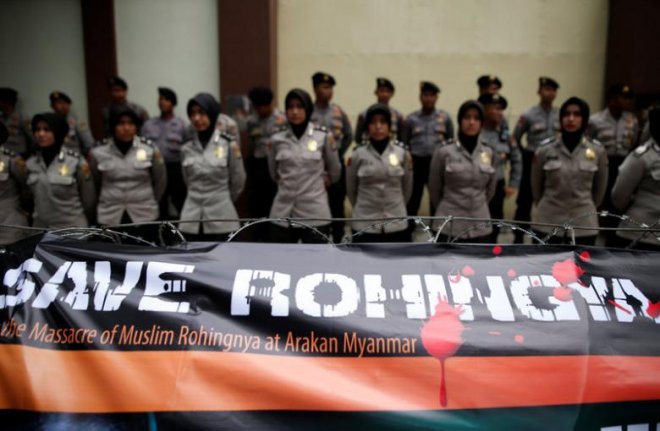
The Najib Razak-led Umno government in Malaysia is pressing ahead with a rally on Sunday to protest against the alleged ethnic cleansing of the Rohingya Muslims in Myanmar, despite stiff opposition from Yangon.
Malaysia, which hosts as many as 56,000 Rohingya refugees, said it has an obligation to ensure that the Myanmar government prevents the humanitarian catastrophe. Signaling the gravity of the situation, the Muslim majority country's prime Minister, Najib Razak, is expected to attend the rally in Kula Lumpur.
Meanwhile, Myanmar protested against the plans and urged Malaysia not to interfere in its internal affairs. Myanmar said Malaysia would be breaking an Asean pact of non-interference in each other's internal matters by organising the rally. U Zaw Htay, the deputy director general of Myanmar president's office, said the rally is a political gimmick by the government intended to garner the support of Malay Muslims.
"According to Asean principles, a member country does not interfere in other member countries' internal affairs. We have always followed and respected this principle. We hope that the Malaysian government will continue to follow it," he said, Myanmar Times reported.
However, Malaysia's foreign ministry said the Rohingya refugee crisis is "no longer an internal matter but an international matter" and a security threat for Malaysia. "The fact that only one particular ethnicity is being driven out is by definition ethnic cleansing. This practice must stop, and must be stopped immediately in order to bring back security and stability to the Southeast Asian region," the ministry said.
"As a neighbour and a responsible member of the international community, it is Malaysia's obligation to ensure that its Asean colleague takes proactive steps to prevent the matter from further deteriorating," the ministry added.
With more reports of gang rape, torture and the killing of the Rohingya ethnic minority in Myanmar streaming in, the United Nations last week called for immediate action to stop the "ethnic cleansing" that has triggered a mass exodus of Muslim refugees into Bangladesh.
Myanmar's Rohingya crisis has remained unsolved for decades despite international rights agencies raising voice against their suppression in a land where they have lived for generations.
The Buddhist nationalists in Myanamr call Rohingya illegal immigrants from Bangladesh while rights organisations call them one of the world's most persecuted peoples. The 1.1 million stateless Rohingya people in Myanmar say they belong there as their predecessors have lived in the country for generations. Thousands of Rohingya people live in refugee camps, in deplorable conditions.









